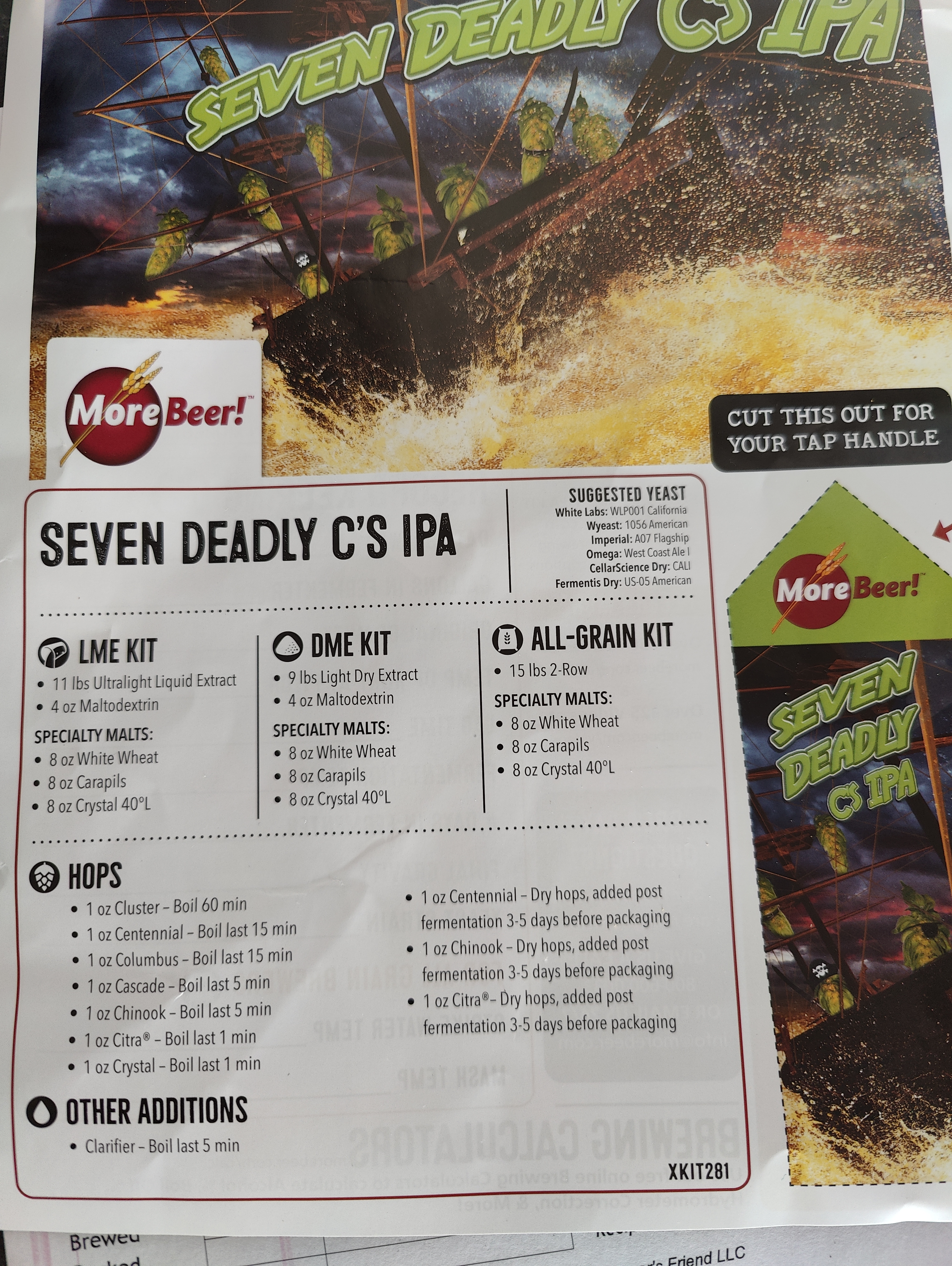Garage Brewer
Active Member
Hey all, I'm doing a 5 gallon LME brew in a 10.5 gallon Anvil today (still working my way up to all grain). The recipe calls for heating 6 gallons to 170F, while steeping a total of 15oz of grains. It says to do it for 30 mins.
Well, I threw the grains in at 80F and turned the Anvil on to do it's thing. By the time these 6 gallons hit 170 the grains will have steeped for about 70-80 minutes.
Any thoughts on how longer steeping may effect the beer? How about 15oz in 6 gallons, is that a good ratio? I just browsed some of the other steeping threads on here and I'm wondering how big of a misstep I've made.
Well, I threw the grains in at 80F and turned the Anvil on to do it's thing. By the time these 6 gallons hit 170 the grains will have steeped for about 70-80 minutes.
Any thoughts on how longer steeping may effect the beer? How about 15oz in 6 gallons, is that a good ratio? I just browsed some of the other steeping threads on here and I'm wondering how big of a misstep I've made.

















































![Craft A Brew - Safale S-04 Dry Yeast - Fermentis - English Ale Dry Yeast - For English and American Ales and Hard Apple Ciders - Ingredients for Home Brewing - Beer Making Supplies - [1 Pack]](https://m.media-amazon.com/images/I/41fVGNh6JfL._SL500_.jpg)








